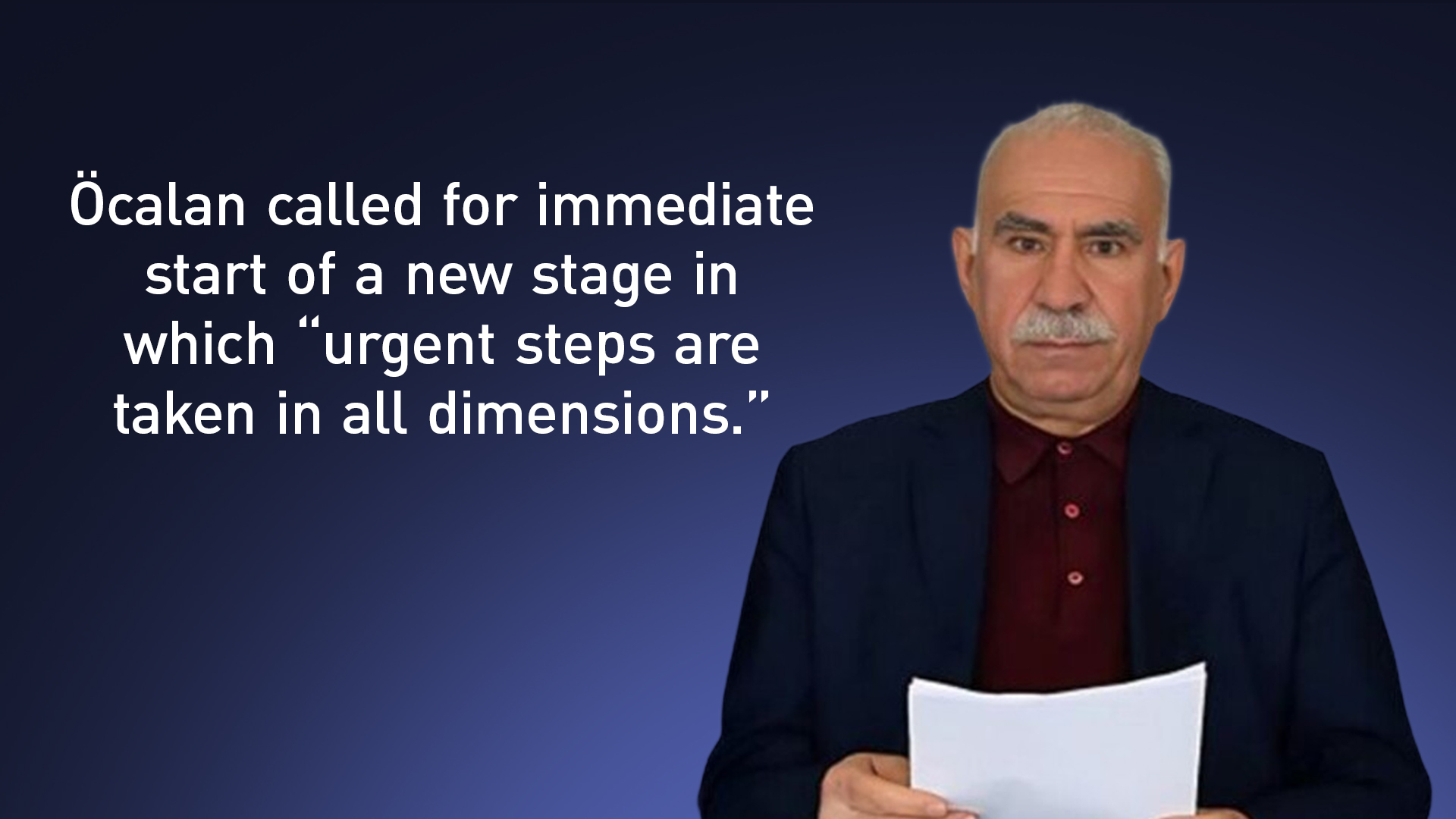Imrali Delegation Meets Öcalan, Highlights Call for Peace and Democratic Integration
Öcalan underlined that a democratic society, peace, and integration are the three essential concepts for achieving a lasting solution. He called for the immediate start of a new stage in which “urgent steps are taken in all dimensions.”

ERBIL (Kurdistan24) – The Imrali Delegation met with jailed Kurdistan Workers’ Party (PKK) leader Abdullah Öcalan on Thursday, holding a three-hour discussion centered on the peace and democratic society process.
In a statement issued after the meeting, the delegation said Öcalan was in good health and in high spirits. He provided a comprehensive assessment of peace efforts to date, describing the ongoing challenges as "gangrenous" and requiring careful and sensitive steps.
Öcalan underlined that a democratic society, peace, and integration are the three essential concepts for achieving a lasting solution. He called for the immediate start of a new stage in which “urgent steps are taken in all dimensions.”
The PKK leader reiterated that his preference remains integration based on a democratic republic and democratic society, saying that recognizing and supporting this strategic approach would bring benefits to “all of us and to all of Turkey.”
He also cautioned that political and media narratives that oversimplify or dismiss this perspective risk undermining the process.
Concluding his remarks, Öcalan reaffirmed his belief in building “eternal friendship and peace between peoples.”
A recent peace initiative commenced in March, with the PKK announcing its dissolution and the end of its armed struggle, following a call from its leader, Öcalan. This historic process is currently in its early and fragile stages, characterized by the PKK's unilateral steps to disarm and disband. However, the Turkish government has yet to offer formal counterassurances or outline its own legal and constitutional reforms in response. The success of this peace process is viewed as critical for transforming Turkey's domestic politics, enhancing its international relations with both the West and Russia, and addressing the long-standing Kurdish-Turkish conflict.
The lack of reciprocal measures from the Turkish government raises concerns about the sustainability of the peace process. Without clear commitments to address Kurdish grievances and implement necessary reforms, the initiative risks stalling or collapsing. This could further exacerbate tensions and hinder progress toward long-term stability and reconciliation.
